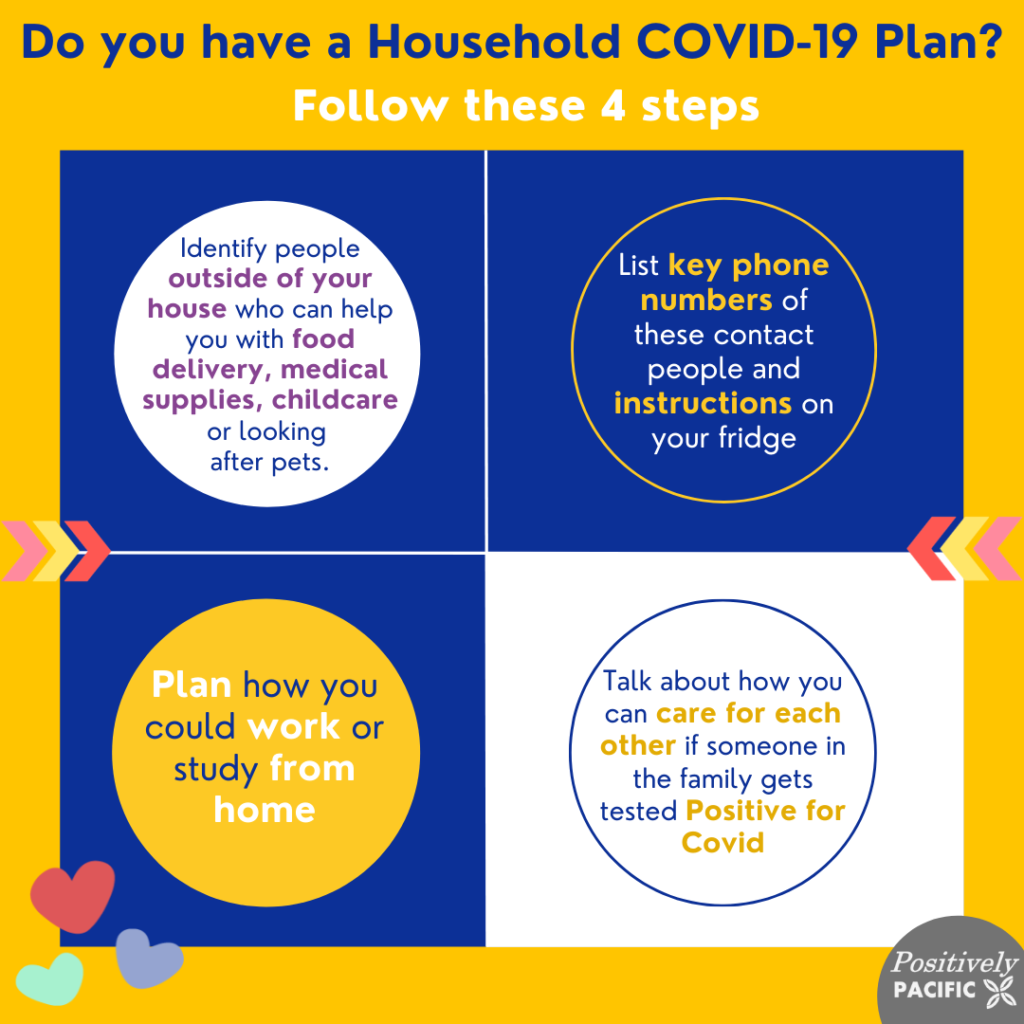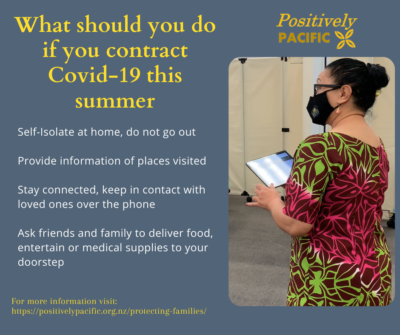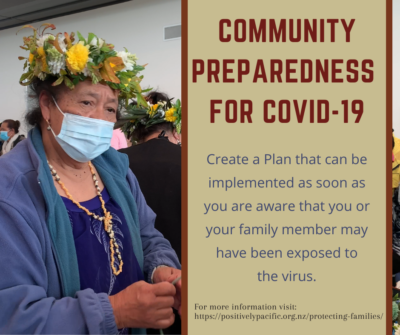



As our children prepare to go back to school it is important to keep our guard up against the spread of the Covid virus. It hasn’t been easy and still needs us all to be careful and keep following the basic steps. These basic steps are:
Look after yourself and your whānau the whole year round by following these basic steps.

Covid signs to watch out for include:- a new or worsening cough, a fever of at least 38°C, shortness of breath, a sore throat, sneezing and runny nose, temporary loss of smell.
If you have any these symptoms please contact your doctor, or call Healthline 0800 358 5453 or your iwi or Pacific health provider.
The main purpose of Positively Pacific is to provide information to improve the health and well-being of Pacific peoples, their families and their communities.
While we are all fighting the Corona virus we still must address all the usual illnesses and health challenges. Practical information on how to address some of these health challenges can be found by clicking on the links listed below:
Over the summer period there is usually an increase in rates of gastroenteritis, upset stomachs related to food poisoning or poor hygiene when handling food. This can be avoided by good hygiene when handling food. Visit this website for simple food safety tips:
https://www.mpi.govt.nz/food-safety-home/tips-for-food-safety-at-home/introduction-food-safety-home/
In 2019, 27 people drowned. 5 were Pacific people. Another 52 people almost drowned and were taken to hospital after they were rescued. 12 were Pacific people. Keep yourself and your family safe at the beach.
This link will take you to the Water Safety New Zealand website and the safety tips page for swimming at the beach: https://watersafety.org.nz/Community-Resources/How%20to%20be%20Beach%20Water%20Safe
New Zealand sunlight can have high levels of ultraviolet (UV) radiation. UV radiation can cause skin and eye damage. You can protect yourself and your children by being SunSmart. Learn how to keep safe while still living life in the sun. https://www.sunsmart.org.nz/
Last year for 2018/2019 Christmas / New year period there were 9 deaths on our roads for this period. 9 deaths too many. Because of Covid more people driving on holiday in New Zealand. Make sure you drive to the conditions and drive safely. Here are five safe driving tips to remember: https://www.drivesafe.org.nz/home/on-the-road/